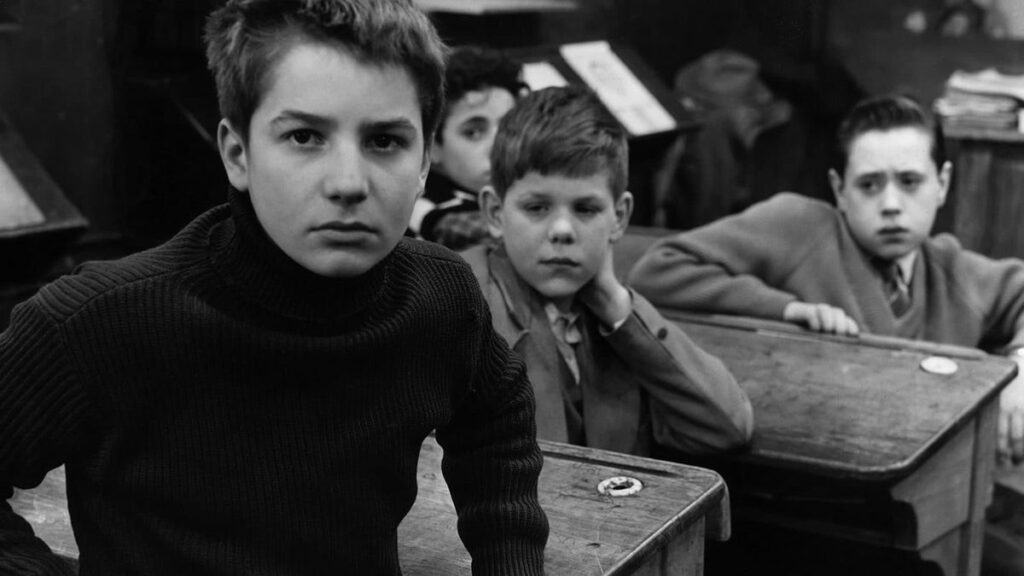There is a lot that college students can learn from quintessential cinematographic masterpieces. Great films by great authors impart lots of learning, and make every student with an inquisitive mind want to watch the very best world cinema has to offer. Art, and films in particular, can have a life-changing effect on students’ lives and academic performance.
In this article, we review some of the best educational films of the 60s and 70s, the value of which goes beyond aesthetic or purely artistic value. There’s a lot you can learn from them, as they have been guiding and shaping thousands of students throughout their college years and beyond. Take a break to go through the list and set aside time to watch them one by one.
IVAN’S CHILDHOOD (1962)
Andrey Tarkovsky
This is the first major feature film by the great Tarkovsky, who is considered one of the greats of all time. The film is set in World War II, and it’s about a Soviet 12-years-old orphan named Ivan Bondarev (Nikolay Burlyaev) who becomes friends with three sympathetic officers while working as a scout behind the German lines. Although the film is technically about the war against the Nazis, there is so much more to it, from the aesthetics that define Tarkovsky’s work to an unusual depiction of war as seen through the eyes of young Ivan. As a college student, you can learn about the relationship between adults and adolescents, the role of valor and commitment, responsibility, and much more.
The dreamlike style that Tarkovsky started experimenting with in this film blurs the lines between reality and illusion, and is based on his unparalleled imagination and creative power. If you feel like you don’t have enough time to watch this amazing masterpiece, do not hesitate to identify a reliable and trustworthy writing service online. Find one to purchase a research paper that will be delivered on time. Professional writers will do their best to follow your tutor’s instructions, abide by best practices in academic writing, and deliver a high-quality paper that will warrant high grades in your school.
THE 400 BLOWS (1959)
François Truffaut
The 400 Blows is an all-time classic film by one of the pioneers of the French New Wave. Inspired by the director’s own childhood, this coming-of-age film has a lot to share about the challenges and barriers facing a child who has to deal with seemingly insurmountable challenges in his family and at school, as it tells the story of a young boy who has nobody to look after him, and who eventually becomes the troublemaker that everyone already believe him to be, delving into a life of petty crime.
The film is a great tribute to the eternal values of friendship and loyalty, and a touching story that ends on a positive note, leaving room for hope and acting as a love song to cinema.

THE VIRGIN SPRING (1960)
Ingmar Bergman
One of the many hits of the famed Swedish film director tells the horrifying story of a virgin raped by two men who are then killed by the girl’s father. Set in 14th-century Sweden, the movie provides amazing insights into the depths of human suffering, despair, cruelty, and compassion. It seems impossible to combine all of these in one effort, but Bergman does this with his usual ingenuity. The Virgin Spring is not an easy watch, but it is extremely thought-provoking, offering s a rare psychological glimpse into real human nature, laying bare both the positive and dark sides of our psyche and demeanor..
THE DISCREET CHARM OF THE BURGEOISIE (1972)
Luis Buñuel
The Discreet Charm of the Bourgeoisie feels more like a dream than a work of fiction, as it presents us a non-linear narrative revolving around the dreams of six middle-class people who keep trying to have a meal together and get constantly interrupted. This eye-opening film explores the vanities of the everyday lives of the middle class, false political correctness, and the sense of aimlessness that takes the better of us at various stages of our lives. Spanish maestro Luis Buñuel does all of this with his unique sense of humor and surreal approach to depicting and narrating life, as our own lives . do not necessarily involve a logically structured and linear progression.
MIDNIGHT EXPRESS (1978)
Alan Parker
Alan Parker offers an intriguing story of a young American college student who is jailed in Turkey after being caught trying to smuggle drugs out of the country. It’s in prison that Billy Hayes’ (Brad Davis) brave quest for freedom starts, as, despite having to endure indescribable forms of verbal and physical violence, he never gives up, showing the kind of resilience, perseverance, and will that eventually see him break free. What you can learn from Midnight Express is that you should never give up, cave, or succumb, no matter how tough and insurmountable the barriers seem to be.
The world of cinema has a lot to offer college students, and the films above all find unique and creative ways of imparting knowledge that stays with you for good.Set aside some quality time to watch these films and make sure to leave enough breathing space to ponder on the meaning that each of them carries and conveys.

